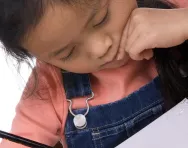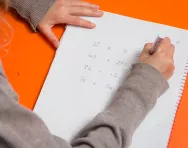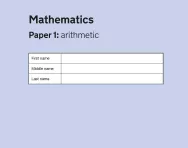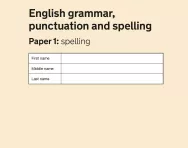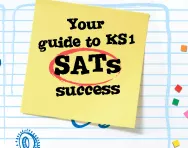TheSchoolRun.com closure date
As we informed you a few months ago, TheSchoolRun has had to make the difficult decision to close due to financial pressures and the company has now ceased trading. We had hoped to keep our content available through a partnership with another educational provider, but this provider has since withdrawn from the agreement.
As a result, we now have to permanently close TheSchoolRun.com. However, to give subscribers time to download any content they’d like to keep, we will keep the website open until 31st July 2025. After this date, the site will be taken down and there will be no further access to any resources. We strongly encourage you to download and save any resources you think you may want to use in the future.
In particular, we suggest downloading:
- Learning packs
- All the worksheets from the 11+ programme, if you are following this with your child
- Complete Learning Journey programmes (the packs below include all 40 worksheets for each programme)
You should already have received 16 primary school eBooks (worth £108.84) to download and keep. If you haven’t received these, please contact us at [email protected] before 31st July 2025, and we will send them to you.
We are very sorry that there is no way to continue offering access to resources and sincerely apologise for the inconvenience caused.
Your KS1 SATs questions answered

What are KS1 SATs?
SATs are a series of assessments in maths and English, that were previously carried out in two stages during your child’s primary education.
Key Stage 1 SATs consist of formal assessments in maths and reading that take around 3 hours in total to complete, plus informal assessments in science that take place throughout the year.
Your child's teacher takes all their work in Years 1 and 2 into consideration in order to build a full, accurate picture of how well your child is doing. The full, teacher-assessment report about your child's progress in maths, English reading, English writing and science should be sent to you by the end of the summer term.
I thought KS1 SATs had been abolished?
KS1 SATs are no longer compulsory. In 2023, children sat the last compulsory KS1 SATs. These are now optional and teachers will continue to assess pupils throughout the year.

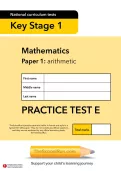
Prepare your child for KS1 SATs today
- Your guide to KS1 SATs
- KS1 SATs revision course
- 10 KS1 SATs practice papers in English & maths
Why did it take so long to scrap Y2 SATs?
The Department for Education used KS1 SATs results to track children's progress through the primary schooling system.
From now on, the results of the Reception Baseline Check will allow schools to measure kids' progress between the ages of 4 and 11 (when they are assessed through KS2 SATs).
The DfE said it was not possible to bring in the changes to KS1 SATs any sooner because data from the Year 2 assessments would still be needed to calculate the progress of primary school pupils.
When will my child take KS1 SATs?
If your child is still sitting KS1 SATs, then the maths and English SATs take place in May (they're not date-specific as KS2 SATs are, so you probably won't know in advance when the tests are due to take place) and are not given all at once – assessments are spread out over a period of time, and teachers try to work them into the normal routine in such a way that students may not feel like they’re being tested.
KS1 SATs are not timed.
How do KS1 SATs results work?
KS1 SATs results show where your child’s academic knowledge ranks against the national average.
The grading system involves children's raw score – the actual number of marks they get – being translated into a scaled score, where a score of 100 means the child is working at the expected standard. A score below 100 indicates that the child needs more support, whereas a score of above 100 suggests the child is working at a higher level than expected for their age. The maximum score possible is 115, and the minimum is 85.
KS1 SATs papers are marked by your child’s teacher. Schools don't publish KS1 SATs results, and they are not sent to the government. You won’t receive your child’s KS1 SATs results from school automatically, but if you’d like to see them you can ask for them.
Children will also be matched against ‘performance descriptors’ such as working towards the expected level, working at the expected level and working above the expected level, when being assessed by their teachers at the end of Key Stage 1.
How important are KS1 SATs?
As soon as the word ‘exam’ pops up, it can set off the parental panic button! Think of Key Stage 1 SATs as evaluations rather than exams – they’re not designed to be passed or failed, and they gauge what level your child has reached rather than whether or not they meet the standards set in the test. It’s another way to highlight where your child is doing well, and where they might need extra help.
How can I help my child prepare for SATs?
There are a number of ways in which you can work on literacy and numeracy concepts at home that will help your child in the classroom, which in turn will give them the confidence to achieve the target level for their age group. Review what they’ll be learning in Year 1 and Year 2 to be ready with relevant activities and worksheets.
For a complete guide to what is tested in the SATs, look through our learning objectives reviews for KS1 maths and KS1 English. We also offer a KS1 SATs Learning Journey, a complete revision course packed with fun worksheets and activities.
You'll find lots more information about KS1 SATs in our articles, packed with teacher tips and expert advice.
Where can I find KS1 SATs papers?
Past papers are available for free download: KS1 SATs English 2016, KS1 SATs Maths 2016, KS1 SATs English 2017, KS1 SATs Maths 2017, KS1 SATs English 2018, KS1 SATs maths 2018, KS1 SATs English 2019, KS1 SATs maths 2019, KS1 SATs English 2022, KS1 SATs Maths 2022, KS1 SATs English 2023, KS1 SATs Maths 2023, KS1 SATs English 2024 and KS1 SATs English 2024.
TheSchoolRun has also produced a selection of 'mock' KS1 SATs papers, written in the style of the 'new' SATs assessments, for at-home practice. Marking schemes are included so you can see how a teacher would assess your child’s work.
You can also browse through some pre-2016 past papers; the new tests are different in format and content, but looking at past papers can give your child an idea of what to expect.
Can I see last year's KS1 SATs papers?
Yes – the 2024 KS1 English SATs and 2024 KS1 Maths SATs are available to download for free.
For more ideas, check out our KS1 SATs success pack for a list of 26 teacher-recommended activities to help with reading comprehension, spelling, writing, addition and subtraction, time, shape and measurements, counting and problem solving, and handling data.
KS2 SATs past papers and information
To download KS2 SATs past papers for free, and for specific advice about the Y6 tests, head to our KS2 SATs overview. We also have information about optional SATs, taken in Y3, Y4 and Y5.
